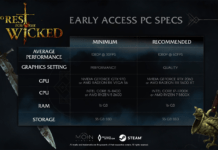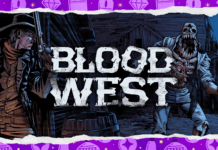Sony unveiled a new video game subscription service for PlayStation on Tuesday.
The service is intended to compete with Microsoft's wildly popular Xbox Game Pass.
But Sony's service is missing a foundational component that makes Xbox Game Pass so appealing.
Sony unveiled its long-rumored video game subscription service Tuesday morning: The PlayStation version of a Netflix-style service for video games.
Starting at $15-per-month and going as high as $18-per-month, PlayStation 4 and 5 console owners will be able to access a rotating catalog of about 400 to 800 games. That library spans several generations of PlayStation consoles, from the original PlayStation to the current PlayStation 5.
In many ways, the new PlayStation subscription service sounds a lot like Microsoft's wildly popular Xbox Game Pass service which has added billions to Microsoft's revenue. It's got a similar price and a similar subscription model, with an even larger library of games.
But there's one critical difference between Xbox Game Pass and Sony's new service: Microsoft launches all of its games on Xbox Game Pass at no additional cost to subscribers. Sony isn't doing that.
When the highly-anticipated "Halo Infinite" launched last holiday season, for instance, it was immediately available on Game Pass with no additional cost. Similarly, when "Starfield" launches later this year, the game will be available on Game Pass on day one.
That's because both of those games are made by Microsoft-owned studios, and everything from Microsoft-owned studios is available at launch, for free, on Game Pass. It's core to Microsoft's business model with Game Pass.
So the argument goes: Rather than paying $60 or $70 for a brand new game that's launching on Game Pass, why not pay for a one-month subscription instead? Even if you pay $15 for the higher subscription tier, you've instantly saved $45 at a minimum.
But when the next major "God of War" entry comes out later this year for the PlayStation 4 and 5, it won't launch on Sony's subscription service.
That's according to PlayStation leader Jim Ryan, who said that Sony putting first-party games on its subscription service "upon their release" is "not a road that we're going to go down" in a new interview.
"We feel if we were to do that with the games that we make at PlayStation Studios," Ryan told video game trade publication GamesIndustry.biz. "The level of investment that we need to make in our studios would not be possible, and we think the knock-on effect on the quality of the games that we make would not be something that gamers want,"
To be clear, first-party Sony games will appear on the service — just not at launch. It's not clear how long the window will be between launch and appearing on the new subscription service.
Notably, Microsoft's years-long acquisition spree puts it in a position to offer some of the world's biggest games on Xbox Game Pass, including "Minecraft" and "DOOM."
Should the company's planned acquisition of Activision for $69 billion be approved by regulators, the next major entries in the "Call of Duty" and "Overwatch" series' will join them.
Despite Sony's success with the PlayStation 5, which has been sold out almost permanently since its launch in November 2020, Microsoft has had runaway success with its Xbox Game Pass subscription service.
As of January 2022, the service had over 25 million paid subscribers: At a minimum subscription price of $10 per month, that equates to roughly $250 million every month. At that pace, Xbox Game Pass subscriptions are positioned to rake in approximately $4 billion between January 2022 and January 2023.
When Sony's service launches this June, it will arrive in Asia first, the blog post said, "followed by North America, Europe and the rest of the world where PlayStation Plus is offered." The goal is to have it fully operational by the end of the first half of 2022, Sony said.
Got a tip? Contact Insider senior correspondent Ben Gilbert via email (bgilbert@insider.com), or Twitter DM (@realbengilbert). We can keep sources anonymous. Use a non-work device to reach out. PR pitches by email only, please.
Read the original article on Business Insider
Automotive giant Ford Motor Company (NYSE: F) stock has had a rough start to 2022, losing 18.5% of its value since the start of the year. On Tuesday, however, Ford finally found the gas pedal — and floored it. As of 11 a.m. ET, Ford stock is up a solid 6.6%.
Micron stock is moving higher after hours following the company's impressive earnings results for its second quarter.
The Dow Jones moved higher amid positive Russia-Ukraine cease-fire talks. Visa and Nike stock impressed. Robinhood stock exploded.
The share price of Rivian Automotive (NASDAQ: RIVN), an electric vehicle (EV) company, skyrocketed this morning on seemingly no company-specific news. Instead, investors may be taking a second look at the EV stock and seeing a buying opportunity after its share price plummeted over the past six months. Its share price has fallen 49% over the past six months as many investors have fled high-growth stocks — and EV stocks in particular — as they've processed information about sky-high inflation, interest rate increases by the Federal Reserve, and the war in Ukraine.
Shares of lidar technology company MicroVision (NASDAQ: MVIS) were skyrocketing on Tuesday, up more than 30% as of 12:35 p.m. ET. MicroVision is a small-cap stock that makes almost no revenue and generates losses, but due to its relatively high short interest, it has become a meme stock pushed on the Reddit message board wallstreetbets. With meme stocks, any small announcement can generate a huge amount of buying power, and there was actually some positive news for MicroVision today, although its ultimate importance is hard to determine.
The share price of electric vehicle (EV) maker Rivian Automotive (NASDAQ: RIVN) rose by more than 17% Tuesday. There was no specific news driving Rivian's share price higher, though. Are investors right to be snatching up shares of the electric truck maker now?
(Bloomberg) — The 11% surge in U.S. stocks in the past two weeks has the hallmarks of a bear-market rally that might give way to deeper losses.Most Read from BloombergUkraine Update: U.S. Doubtful After Russia Vows Kyiv PullbackUkraine Update: Kyiv Seeks Cease-Fire Deal in Russia TalksWorld’s Longest Passenger Flight Plans to Avoid Russian SkiesAbramovich Suffered Suspected Poisoning During Ukraine TalksThe Fed Has Made a U.S. Recession InevitableThat’s the conclusion of analysts at Bank of Ame
The S&P 500 index exited market-correction territory Tuesday, a move that has tended to point to near- and medium-term gains for the U.S. large-cap benchmark in the past. The S&P 500 (SPX) rose 56.08 points, or 1.2%, to close at 4,631.60 in afternoon. The index needed to close above 4,587.77 to mark a 10% rise from its March 8 close at 4,170.70, which marked the correction low, according to Dow Jones Market Data.
The House is ready to vote on H.R. 2954, also known as SECURE 2.0 — a major revamp to the landmark 2019 law that overhauled retirement tax rules for older Americans – and the changes could mean even bigger savings for your investment portfolio and nest egg.
Shares of the EV battery start-up are surging on reports of a big partnership and fresh analyst stock coverage.
"My life has been a product of compound interest," Warren Buffett once famously said.
In addition to reporting its fourth-quarter results, the clinical-stage biotech announced a lucrative new collaboration deal with Sanofi.
Shares of fertilizer giant Mosaic (NYSE: MOS) tumbled 10.3% through 9:45 a.m. ET on Tuesday, erasing two weeks of gains in the space of just 15 minutes of trading. There's no hard news to explain why Mosaic stock is falling, but in a note out this morning, StreetInsider.com pointed to a likely catalyst: peace talks between Ukraine and Russia as negotiations begin in Turkey, and Russia's promises to "reduce military action" in the northern parts of Ukraine, reports TheHill.com today. The conflict in Ukraine and the resulting sanctions on Russia have combined to send the prices of natural gas (used to produce nitrogen fertilizer), fertilizer itself, and fertilizer stocks up sharply since last February.
In the race for electric vehicles, Tesla has a considerable lead over its rivals. To fill this gap – which is far from being insurmountable – the legacy carmakers rely in particular on their tact and their experience in mass production and production rate management. The young Californian manufacturer has just snatched from Tesla a prize which crowns the luxury electric vehicle of the year for 2022.
Meme stock favorites GameStop and AMC Entertainment were briefly halted from trading on the NYSE Tuesday as shares snapped one of the longest rallies on record for the video game retailer.
Rep. Nancy Mace joins Yahoo Finance Live to discuss cannabis legislation, inflation, midterm elections, and the outlook for the ongoing Russia-Ukraine war.
Market forces rained on the parade of Carnival Corporation & plc ( NYSE:CCL ) shareholders today, when the analysts…
VinFast, the Vietnamese automaker under Vingroup, said Tuesday it will build its first U.S. factory in North Carolina, part of the company's previously stated plans to invest and expand in the country. The automotive newcomer said it will spend about $2 billion in the first phase of construction of the 1,976-acre North Carolina factory and will continue to invest in future phases. VinFast plans to produce two passenger vehicles at the factory as well as electric buses, batteries for electric vehicles and ancillary industries for suppliers.
Neither of the obstacles I'll discuss today are insurmountable, but they both pose substantial risk to Novavax's stock, so let's take a look. The biggest reason why Novavax investors need to be careful right now is that the U.S. Food and Drug Administration (FDA) hasn't approved its coronavirus vaccine yet despite having its application packet since Jan. 31. While the FDA assented to similar requests for Emergency Use Authorization (EUA) from competitors like Pfizer and Moderna within a handful of weeks, the process is dragging on with Novavax's candidate, and it's unclear why.
Yahoo Finance Live's Brian Sozzi discusses Deutsche Bank downgrading CVS Health stock.












